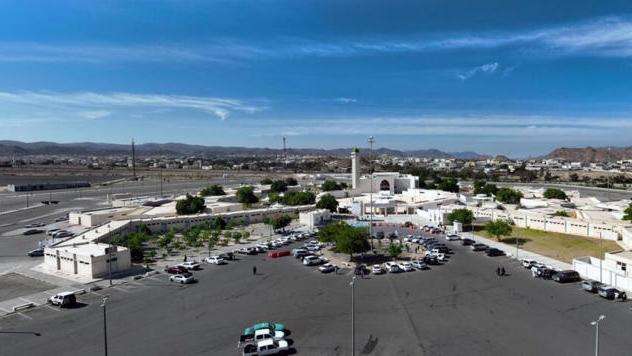The Kingdom of Saudi Arabia is undertaking a massive, multi-faceted initiative to transform the Hajj and Umrah pilgrimage experience, leveraging a combination of infrastructure upgrades and cutting-edge technology. The ongoing efforts, spearheaded by the Royal Commission for Makkah City and Holy Sites (RCMC), are enhancing the Miqats—the designated entry points where pilgrims enter the sacred state of Ihram—to ensure a seamless, efficient, and spiritually enriching journey for millions.
The strategic enhancement of key Miqats, such as Qarn Al-Manazil and Wadi Muharram, has yielded remarkable results. During Hajj 1446 AH, the RCMC's upgrades contributed to a significant reduction in pilgrim waiting times, from 80 minutes down to just 39 minutes. This focus on efficiency has been met with overwhelmingly positive feedback, with a 99% service quality and satisfaction rate and a 100% response rate to visitor comments. These improvements align with the broader goals of Saudi Vision 2030 to welcome over 30 million Umrah pilgrims annually.
In addition to physical infrastructure, the government is rolling out a suite of technological innovations to support pilgrims. These include the new "Rushd" app and smart bracelets, which store emergency contact information and can be used for quick assistance if a pilgrim is lost or in distress. The Ministry of Hajj and Umrah has also launched the “Eashathon” challenge to encourage Saudi chefs to develop innovative catering solutions, ensuring high-quality, safe meals for pilgrims. Furthermore, the Nusuk Umrah service, launched in late 2024, has been a game-changer, allowing foreign pilgrims to apply for visas and book all necessary services—including pre-booked hotel accommodations and transportation—directly online, eliminating the need for intermediaries and streamlining the entire process. This new policy, which requires a pre-booked, verified itinerary for visa issuance, is mandatory for all pilgrims.
The results of these initiatives are already evident. The General Authority for Statistics (GASTAT) reported that a total of 1,673,230 pilgrims performed Hajj in 1446 AH (2025), with over 1.5 million coming from abroad. The numbers for Umrah are also on the rise, with over 6.5 million international pilgrims performing Umrah in the first quarter of 2025 alone—an 11% increase compared to the same period in 2024. As Saudi Arabia continues its preparations for Hajj 1447 AH (2026), these modernizations signal a profound commitment to making the pilgrimage safer, more accessible, and more spiritually fulfilling for Muslims around the world.








.svg)


_7.jpg)